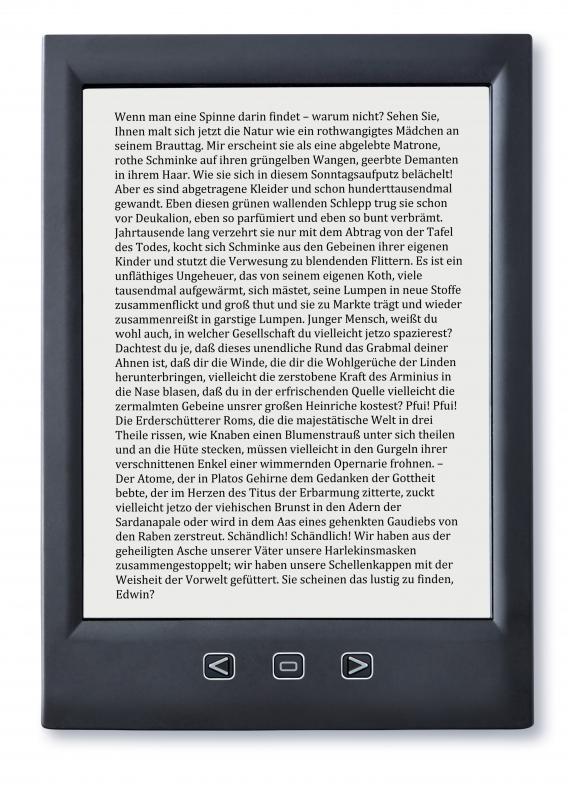At WiseGEEK, we're committed to delivering accurate, trustworthy information. Our expert-authored content is rigorously fact-checked and sourced from credible authorities. Discover how we uphold the highest standards in providing you with reliable knowledge.
How do I get Started in Ebook Publishing?
The Internet, a relatively new medium, has transformed how people around the world go about their daily lives, including how people read books. Ebooks, which are electronic alternatives to hard-copy books, are a growing trend among readers who want instant access to the book of their choice, as well as writers who forego costly and timely print-publishing steps to cater specifically to their audience.
The growing popularity of online books has contributed to the splurge in income potential for those who publish their books online. Ebook publishing opens up the door for writers who no longer have to face rejection letters from publishers, pay hefty fees associated with the traditional publishing process, or receive only a tiny percentage of revenue once their work hits the bookshelves.

Making a book available electronically may be relatively simple, but it still requires a lot of work, including creative thinking, marketing the book, and protecting it against piracy. Creative thinking is an important step in the starting phase of ebook publishing. Here, the writer needs to determine who his audience will be, and either come up with the writing material himself, or less commonly, contract out for that service.
Marketing is also important because it can make a big difference in the number of readers an ebook publisher gets. This step in the ebook publishing process includes selecting which sites distribute his or her ebook.

Writers may also want to consider issues of piracy when publishing ebooks, as this kind of copyright infringement can strip them of thousands of dollars a year in lost revenue. Though ebook publishing has its advantages, it also makes it easier for readers to share books with others without paying for them. One way of doing so is by simply emailing a book to a friend. Another way is by getting a refund for the book, and still continuing to use it electronically. Pirates can also make a profit from another’s work simply by stealing its content and reselling it online.
Ebook publishing, however, does not mean that writers will necessarily be subject to real piracy threats. There are several programs writers can pay for on a monthly basis that ensure the security of their work. Some charge a monthly fee and work by encrypting and locking PDF and EXE files, thus preventing unauthorized use.
Many of these ebook publishing security programs also work to ensure only one user gets access to one IP address. “IP tracking” essentially warns writers when multiple users are attempting to use one IP address, and helps a writer to eliminate an IP address in case he or she gets a refund.
The software most commonly used in ebook publishing are Adobe® Acrobat® and Flip Album®. Writers can also get access to pictures to augment their ebooks by subscribing to royalty-free photos. Royalty-free essentially means writers buy licensing rights to use photographs they choose from a web site.
There are also a number of programs available that simplify ebook publishing for writers. These programs often offer a step-by-step guide that helps writers in every stage of the ebook publishing process, including access to free book cover templates and members-only forums.
AS FEATURED ON:
AS FEATURED ON:












Discussion Comments
@pastanaga - That's something that has to be negotiated as well though. I've heard of publishing houses only giving authors the same percentage of royalties on ebooks that they give on paperbacks.
If you self publish, on the other hand, you could end up with 70% or more of the royalties from sales of your books. Even if you sell fewer books that could end up being the better deal.
@Mor - I'm not sure how the rights work, but you might be able to get away with selling the hard copy rights to a publisher and keeping the ebook rights for yourself. I know that J.K.Rowling did that with the Harry Potter books (although I suspect that might have been because she happened to publish them right before ebooks started becoming more popular).
That's why you couldn't buy Harry Potter ebooks for a long time, and then you could only get them from the website she set up specifically to sell them.
The best thing about ebooks from an author's point of view is that they are almost always more lucrative than hard copies because you get a bigger percentage.
Remember that e-publishing and self publishing aren't always the same thing. If you want to be published by a traditional publisher, you can always try to make it a condition that your book be published online as well.
I'm shopping around a poetry manuscript at the moment and that was one of the things I used as a criteria for who to send it to. If they don't publish ebook versions of their books I don't want to do business with them.
Post your comments